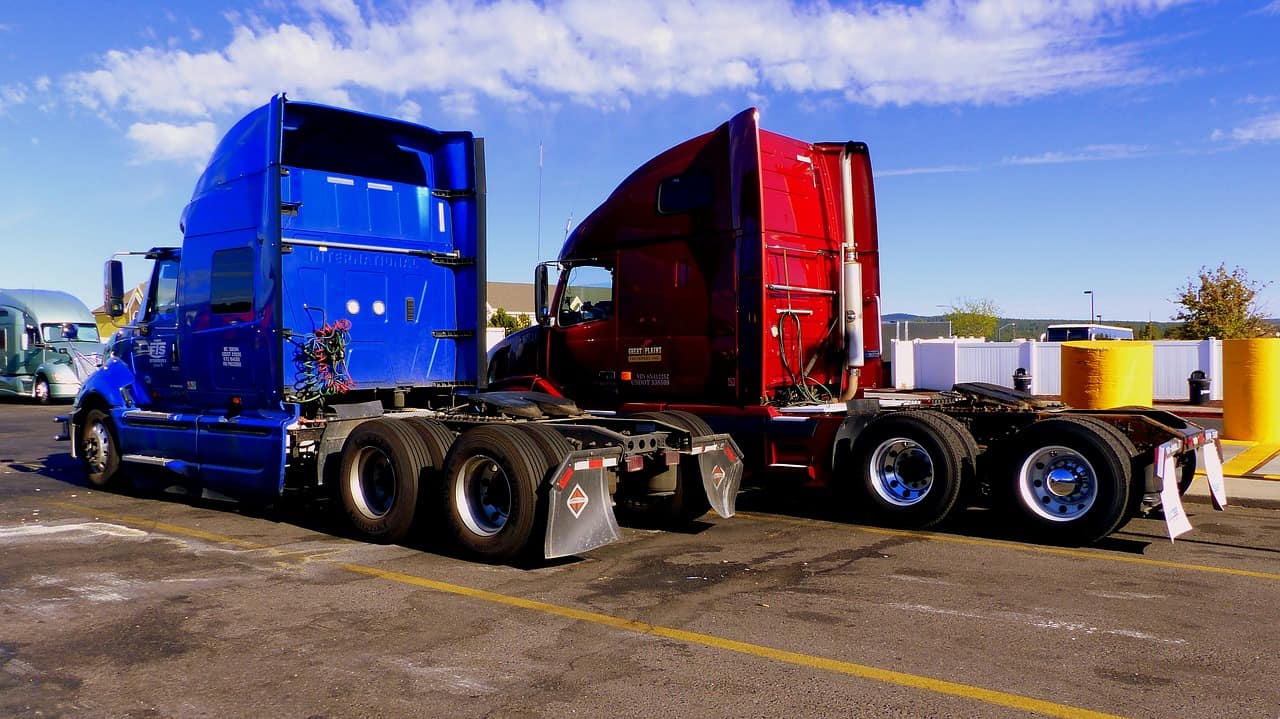Are you looking to become an independent contractor and enjoy that extra freedom and pay that comes with it? That’s great, but there are a few things to consider and arrange before taking that leap.
Being an independent contractor truck driver is incredible, but it also comes with more responsibility and risks. You will be in charge of obtaining your own clients and work but have the freedom to take time off when needed. Plus, you get to do it in the truck of your choosing.
Where the best truck drivers go to find jobs nationwide!
What Is an Independent Contractor Truck Driver?
An independent contractor truck driver works for his own business and provides his services to carrier companies. An independent contractor can also be an owner-operator if they have their own truck and equipment, but these can also be leased.
Requirements of Independent Contractor Truck Drivers
To be an independent contractor truck driver, you need to have the following qualifications:
- At least 18 years old if intrastate
- At least 21 years old if interstate
- A valid CDL
- U.S. citizenship
- A clean driving history with minimal to no violations
- 1 to 2 years of CDL driving experience
- Pass the DOT physical and drug screening tests
- Insurance
Pros and Cons of Becoming an Independent Contractor Truck Driver
Being an independent contractor truck driver comes with certain perks, such as:
- Earn More Money. Independent contractors usually get paid a percentage of the load’s value. Otherwise, they get a higher mile rate than company drivers. Given that you have more freedom in picking which loads you want to ship, this can dramatically increase your income.
- Tax Benefits. Being an independent contractor means running your own business, which comes with certain tax benefits like deducting your business expenses.
- Make Your Own Schedule. You lease out your services to carrier companies. This means you have more freedom in the loads you pick and the companies you want to work with.
- Schedule Your Time Off. You have more freedom in taking time off. Sure, it won’t be paid time off, but you won’t miss any important family events like company drivers often do.
- Personalize Your Equipment. As an independent contractor, you can either buy or lease the equipment you wish to use for your job. This gives you a lot more freedom and comfort in your job.
Sounds great, right? However, there are also some drawbacks to working as an independent contractor truck driver, such as:
- Start-Up Costs. You have to acquire your own vehicle and equipment. You can either buy or lease this, but the expense is yours.
- Pick the Right Company to Work With. As an independent contractor, you rely on the loads a company can provide you. Therefore, picking the right company can assure you of having enough work.
- No Paid Time Off. You have more freedom to take time off, but it won’t be paid time off.
- Taxes. You need to make sure to keep a three-year record of all your documentation, such as receipts, loads, miles driven, and invoices. This bookkeeping is a lot of responsibility, although you can hire an accountant for this.
- Limited Benefits. Because you’re technically not working for your carrier company, you are usually not entitled to the same health benefits that employees get.
- Maintenance Costs. You are responsible for any maintenance and repairs to your equipment and associated costs.
7 Steps for Becoming an Independent Contractor Truck Driver
To become a successful independent contractor truck driver, you have to do a few things.
Step 1: Research the Qualifications for Where You Live
Qualifications may differ per state. As a general rule, you must be 21 years old to drive a commercial vehicle. However, you only need to be 18 years old to drive intrastate routes in some states.
Always look into your state’s qualifications to make sure you are qualified for the kind of work you want to be doing.
Step 2: Meet the Minimum Requirements
First, make sure you are of the right age and hold a US passport or citizenship. Then you will need to acquire your CDL and seek work as a company truck driver. Be sure to keep a clean driving record while you obtain your 1 or 2 years of experience.
Finally, all that’s left is passing your DOT screening and ensuring you are adequately insured, and you can be on your way to becoming an independent contractor.
Step 3: Purchase or Lease Your Own Truck
One of the biggest perks of being an independent contractor trucker is that you get to buy or lease the truck and equipment you want to work with. The truck and equipment you need will depend on the type of loads you will be hauling. Find a company sales rep that will show you different options for your desired line of work.
Step 4: Market Your Services for Assignments
As an independent contractor, you need to find your own truck driving job. You will have to market your services to potential clients. Present yourself properly and provide relevant experience and references to get an edge.
Step 5: Search Load Boards
If you don’t intend to lease on with a company, you can instead obtain your own trucking authority. This operation authority allows you to search the online load boards for jobs. There might be a slight learning curve, but you can increase your income once you understand navigating the load boards to find trucking jobs.
Step 6: Prepare Funds for Maintenance & Repairs
As you are responsible for all the costs of your operation, it is a good idea to set aside a separate fund for any repair and maintenance costs you might incur while working.
Step 7: Create Your Own Schedule
Your job as an independent contractor comes with some new responsibilities. Make sure to schedule in time for administration, procuring new clients or loads, and maintaining your truck.
While time management can be tricky, the biggest reward for many independent contractor truck drivers is the ability to make their schedules.
Is Becoming an Independent Contractor Truck Driver for You?
Do you enjoy being your own boss and taking responsibility for everything that comes with it? Then becoming an independent contractor truck driver is definitely for you.
You get to schedule your own time off, hunt for the most profitable loads, and pick the perfect truck and equipment for the job. However, some start-up costs are associated with becoming an independent contractor. So be sure to do your research to avoid being short at the end of the month.
For the best jobs in the trucking industry, be sure to check out TruckDrivingJobs.com. Qualified owner-operators with a Class A CDL are especially needed. However, all experienced Class A drivers and independent contractor truck drivers should apply for jobs!
FAQs
The main difference between an owner-operator and an independent contractor is that an owner-operator owns his truck and equipment and has his own trucking authority. Whereas an independent contractor most often leases their truck and equipment and leases their services to a carrier company.
Independent contractor truckers earn an annual net income of $50,000 to $60,000. Of course, this depends on how well you market your services.
If you like making your own decisions and being fully responsible for your business’s success and have at least a year of commercial driving experience, you can be an independent trucker.



